Quick answer: The Best VPN for Security Cameras in 2024 is NordVPN!
| NordVPN | ExpressVPN | Windscribe FREE VPN |
|---|---|---|
 www.nordvpn.com NordVPN Price: Servers: 6000+ in 111 countries Simultaneous connections: 6 Jurisdiction: Panama Payment: PayPal, AmazonPay, Crypto, Google Pay, Klarna Torrenting: OK Unblocks US Netflix: Yes Encryption: IKEv2/IPSec, AES-256, OpenVPN, NordLynx Dedicated IP: $3.69/month TrustPilot Score: 4,2/5 Money-back: 30 days Extra: Double VPN, Obfuscated servers NordVPN review |
www.expressvpn.com ExpressVPN Price: Servers: 3300+ in 105 countries Simultaneous connections: 8 Jurisdiction: British Virgin Islands Payment: PayPal, Crypto, AliPay, Klarna, Torrenting: OK Unblocks US Netflix: Yes Dedicated IP: Not provided TrustPilot Score: 4,4/5 Money-back: 30 days ExpressVPN review |
 www.windscribe.com Windscribe Price: FREE Servers: 11 countries Simultaneous connections: Unlimited Jurisdiction: Canada Torrenting: OK Unblocks Streaming: Yes Traffic: 10 GB Free TrustPilot Score: 4,8/5 Speed: Fast |
In the digital age, where security and privacy are paramount, selecting the best VPN for security cameras has become crucial for homeowners and businesses alike.
A Virtual Private Network (VPN) not only secures your internet connection, protecting your personal and sensitive data from hackers and eavesdroppers, but it also plays a significant role in enhancing the security of your surveillance systems.
With the increasing sophistication of cyber threats, integrating a VPN with your security cameras can provide an additional layer of protection, ensuring that your surveillance feeds remain private and accessible only to authorized users.
Whether you’re monitoring your home while on vacation, keeping an eye on your business premises, or ensuring the safety of public areas, a reliable VPN can help prevent unauthorized access to your security camera feeds.
This is particularly important given the rise in incidents involving the hacking of camera systems. A robust VPN encrypts your camera’s internet connection, making it virtually impossible for intruders to intercept the video streams or tamper with your surveillance data.
In this guide, we will delve into the essential features to look for when selecting a VPN for security cameras, including strong encryption standards, high-speed connections, stable performance, and compatibility with a range of devices and camera systems.
We’ll also highlight the importance of choosing a VPN with a no-logs policy to ensure that your surveillance activities are not recorded or stored, providing you with peace of mind that your security setup is as secure and private as possible.
Whether you’re a tech-savvy individual or new to the world of digital security, this guide aims to help you make an informed decision on the best VPN to safeguard your security cameras and the precious assets they protect.
Best VPN for Security Cameras 2024
NordVPN
NordVPN stands out as a top-tier choice for enhancing the security of your security camera systems for several reasons:
-
Vast Server Network: NordVPN’s extensive server network ensures that users have access to a wide range of IP addresses and locations, facilitating stable and reliable connections for your security cameras. This is crucial for maintaining uninterrupted surveillance, especially for remote monitoring.
-
Strong Encryption Protocols: The foundation of NordVPN’s service is its robust encryption standards, utilizing AES-256 encryption, which is the same level of security used by many governments and military organizations. This ensures that the data transmitted by your security cameras is encrypted and secure from interception or unauthorized access.
-
Double VPN: NordVPN’s Double VPN feature provides an additional layer of security, routing your internet traffic through two VPN servers instead of just one. This means your data is encrypted twice, significantly enhancing the security of your connection and making it even more challenging for potential intruders to decipher the encrypted data from your security cameras.
-
CyberSec Technology: NordVPN’s CyberSec feature is designed to enhance your digital security further by blocking websites known for hosting malware, phishing scams, and annoying ads. By filtering out these potential threats, CyberSec helps protect your security camera network from being compromised by malicious software that could be used to gain unauthorized access to your surveillance feeds.
Pros:
- Vast Server Network: Ensures reliable and versatile connections for your security cameras.
- Double VPN: Offers an extra encryption layer, significantly enhancing security.
- CyberSec Technology: Protects your security cameras from malware and other cyber threats.
Cons:
- Cost: NordVPN may be slightly more expensive than some of its competitors, but the advanced features and high level of security it offers can justify the higher price for users prioritizing the security of their surveillance systems.
In summary, NordVPN’s combination of a vast server network, advanced encryption, and unique security features like Double VPN and CyberSec make it an excellent choice for securing your security cameras. While it may come at a slightly higher cost, the investment in NordVPN is a worthwhile consideration for those seeking to ensure the highest security level for their surveillance systems.
ExpressVPN
ExpressVPN is highly regarded in the VPN industry, and its features make it an excellent choice for securing security cameras. Here’s why:
-
Fast and Reliable Servers: ExpressVPN is known for its high-speed servers, which is crucial for security camera systems that require a stable and continuous connection for live streaming and recording. Fast speeds ensure that video feeds are clear and uninterrupted, which is essential for effective surveillance.
-
Advanced Security Features: ExpressVPN provides several advanced security features, including split tunneling. This feature allows you to route some of your device traffic through the VPN while other devices or apps connect directly to the internet. For security cameras, this means you can protect your video streams without compromising the speed or access of other internet activities on your network.
-
Top-Level Encryption: ExpressVPN uses AES-256 encryption, which is the industry standard and considered virtually unbreakable. This level of encryption ensures that the data transmitted by your security cameras is securely encrypted, making it extremely difficult for unauthorized parties to access or tamper with your surveillance footage.
-
Strict No-Logging Policy: ExpressVPN has a strict no-logging policy, meaning it does not keep track of or store any information about your online activities, including your security camera streams. This policy is crucial for maintaining the privacy of your surveillance system.
-
User-Friendly Interface: The simplicity of ExpressVPN’s interface makes it accessible to users of all tech levels. Setting up ExpressVPN for your security cameras can be straightforward, ensuring that even those who are not tech-savvy can enhance the security of their surveillance system with minimal hassle.
-
Wide Range of Server Locations: With servers in 94 countries, ExpressVPN offers a broad selection of locations. This allows you to choose a server that is geographically close to you, minimizing latency and maximizing the speed and stability of your security camera connection.
Pros:
- Fast Connection Speeds: Ideal for high-quality, uninterrupted video streaming from your security cameras.
- Split Tunneling: Offers flexibility in routing traffic, allowing you to protect your surveillance system while accessing the internet normally for other uses.
- Robust Encryption and Privacy Protections: Keeps your surveillance data secure and private.
In conclusion, ExpressVPN’s combination of speed, security features, and user-friendly design make it a standout choice for securing security cameras. Whether you’re monitoring your home, business, or any other property, ExpressVPN provides the tools and reliability needed to ensure your surveillance system is both secure and effective.
PureVPN
PureVPN stands out as a commendable choice for securing security camera systems, thanks to its comprehensive features and capabilities designed to enhance digital security and privacy. Here’s why PureVPN is well-suited for security cameras:
-
Wide Server Network: PureVPN boasts an extensive network of servers spread across the globe. This wide server network ensures that users can connect to a server close to their location, providing a stable and reliable connection for security cameras, which is essential for continuous surveillance without interruptions.
-
Dedicated IP: One of PureVPN’s standout features is the option to use a dedicated IP address. This means you can have an IP address unique to your security camera system, reducing the risk of being blacklisted or mixed up with traffic from other users. A dedicated IP adds an extra layer of security, making it more difficult for unauthorized users to gain access to your surveillance feeds.
-
Variety of Protocols: PureVPN supports multiple security protocols, including OpenVPN, L2TP/IPSec, PPTP, SSTP, and IKEv2. This variety allows users to choose the protocol that best suits their security needs and device compatibility, ensuring optimal protection and performance for security camera data transmission.
-
Split Tunneling: The split tunneling feature is particularly useful for security camera systems. It allows you to selectively route traffic from your security cameras through the VPN while allowing other internet traffic to pass outside the VPN. This can help prioritize your security cameras’ data protection without compromising the speed and accessibility of your other online activities.
Pros:
- Wide Server Network: Ensures easy access to servers for a stable connection.
- Dedicated IP: Offers enhanced security and privacy for your surveillance system.
- Various Protocols Available: Provides flexibility in choosing the most appropriate security protocol for your cameras.
Cons:
- Average Connection Speeds: Some users may experience less than optimal connection speeds, which could affect the quality of real-time video surveillance.
- Occasional DNS Leaks: There have been reports of DNS leaks, which could potentially expose your original IP address and diminish the privacy of your surveillance system.
In conclusion, PureVPN’s robust server network, dedicated IP option, and flexible security protocols make it a strong option for securing security cameras. While it offers significant advantages, particularly in terms of security and flexibility, potential users should be aware of its average connection speeds and the possibility of DNS leaks. Nonetheless, for those prioritizing the security and privacy of their surveillance systems, PureVPN provides a solid foundation with its advanced features.
PrivateVPN
PrivateVPN stands out as a commendable choice for securing your security camera setup due to its combination of strong security features, user accessibility, and performance. Here’s why PrivateVPN could be a solid fit for your security needs:
-
Strong Encryption and Privacy: PrivateVPN uses robust encryption standards, including AES-256 encryption, to secure your data transmission. This ensures that the video feeds from your security cameras are protected from interception and unauthorized access. Coupled with a strict zero-logging policy, PrivateVPN guarantees that your surveillance activities and data are not recorded or stored, maintaining your privacy and security.
-
Port Forwarding Feature: The port forwarding capability is particularly beneficial for security camera users. It allows you to direct internet traffic from specific ports to your security cameras, facilitating easier remote access to your camera feeds. This is essential for those who need to configure their surveillance system for remote viewing securely.
-
User-Friendly Interface: For individuals who may not be very tech-savvy, PrivateVPN offers an intuitive interface that simplifies the process of connecting to a VPN server and configuring settings. This ease of use ensures that you can secure your security cameras without needing extensive technical knowledge.
-
Fast Server Speeds: PrivateVPN provides fast server speeds, which is crucial for streaming high-quality video feeds from your security cameras without lag or buffering. This ensures that you can monitor your surveillance footage in real-time with clarity and reliability.
-
Multiple Protocols for Added Security: Offering a selection of protocols including OpenVPN, L2TP, and IKEv2, PrivateVPN gives you the flexibility to choose the most appropriate protocol based on your security needs and network setup. This variety allows for a tailored approach to securing your camera feeds.
-
Simultaneous Connections: With the ability to connect up to six devices on a single account, PrivateVPN is an excellent option for users with multiple security cameras or devices. This feature allows you to secure several camera feeds across different locations, all under one VPN subscription.
-
Geo-Restriction Bypassing: PrivateVPN’s capability to unblock geo-restricted content extends to accessing your security cameras from abroad. This feature is invaluable for users who travel frequently or have cameras installed in various international locations, ensuring uninterrupted access to your surveillance system from anywhere in the world.
In summary, PrivateVPN offers a compelling mix of strong encryption, ease of use, and specialized features like port forwarding, making it a strong candidate for securing your security cameras. Its commitment to privacy, combined with its ability to bypass geo-restrictions and support multiple connections, makes PrivateVPN a versatile and reliable VPN choice for enhancing the security of your surveillance system.
Surfshark
Surfshark stands out as a compelling option for securing your security cameras, combining affordability with robust security features. Here’s why Surfshark might be the ideal VPN for your surveillance needs:
-
Top-Level Encryption: Surfshark uses industry-standard AES-256-GCM encryption, ensuring that the data transmitted by your security cameras is protected against interception and unauthorized access. This level of encryption is crucial for maintaining the privacy and security of your surveillance feeds.
-
Unlimited Simultaneous Connections: One of Surfshark’s most attractive features is the ability to connect an unlimited number of devices on a single subscription. This is particularly beneficial for securing multiple security cameras across different locations, as it allows for comprehensive coverage without the need for multiple VPN accounts.
-
CleanWeb Feature: Surfshark’s CleanWeb technology blocks ads, trackers, malware, and phishing attempts. This added layer of protection is vital for security cameras, as it minimizes the risk of your surveillance system being compromised by malicious software or cyber threats.
-
User-Friendly Interface: Surfshark is known for its intuitive and straightforward interface, making it accessible even for those with limited technical expertise. Setting up Surfshark on your devices and configuring it to work with your security cameras is simple and hassle-free.
-
Extensive Server Network: With servers in multiple countries worldwide, Surfshark ensures that you can find a reliable and fast connection, which is essential for the uninterrupted streaming of live or recorded surveillance footage.
-
Affordable Pricing: Despite its extensive feature set, Surfshark remains one of the more budget-friendly VPN options on the market. This makes it an attractive choice for both individuals and businesses looking to secure their security cameras without breaking the bank.
-
NoBorders Mode: Surfshark’s NoBorders mode allows you to use the VPN even in restrictive regions, ensuring that you can access and monitor your security cameras from anywhere in the world.
Overall, Surfshark’s combination of affordability, unlimited connections, and robust security features makes it an excellent VPN choice for securing your security cameras. Whether you’re looking to protect the privacy of your home surveillance or ensure the security of cameras monitoring business premises, Surfshark provides a comprehensive solution that doesn’t compromise on quality or performance.
Selecting the right VPN for your security cameras is crucial to ensure your surveillance system’s privacy, security, and accessibility. Here are key factors to consider when choosing a VPN for security cameras:
-
Strong Encryption: The VPN should offer robust encryption standards, such as AES-256, to protect the data transmitted by your security cameras from unauthorized access and ensure your feeds remain private.
-
Stable and Fast Connections: Look for a VPN known for its stable and fast connections to ensure high-quality, uninterrupted video streaming from your security cameras. Slow or unstable connections can lead to lagging or dropped video feeds, which could mean missing critical surveillance footage.
-
Server Availability: Choose a VPN with a wide selection of server locations. This is especially important if you need to access your security cameras from a region with internet restrictions or if you’re aiming to reduce latency by connecting to a server closer to the camera’s location.
-
No-Logs Policy: Ensure the VPN has a strict no-logs policy, meaning it does not keep records of your online activity. This is crucial for maintaining the privacy of your surveillance footage.
-
Simultaneous Connections: Consider how many devices you need to connect to the VPN simultaneously. If you have multiple security cameras that require VPN protection, look for a service that allows for numerous simultaneous connections.
-
Compatibility: The VPN should be compatible with the devices and operating systems you’re using for your security cameras and their monitoring. This includes support for routers if you’re planning to cover all devices on your network.
-
Reliability: Choose a VPN known for its reliability and uptime. Your surveillance system needs constant protection, so a VPN that frequently drops connections or undergoes extensive maintenance could leave your cameras unprotected.
-
Ease of Use: If you’re not technically inclined, look for a VPN with user-friendly interfaces and easy setup processes. Some VPNs offer dedicated support for setting up the service on routers, which can be particularly helpful.
-
Customer Support: Opt for a VPN provider that offers excellent customer support, including live chat and extensive troubleshooting guides. Quick and efficient support can be crucial if you encounter any issues with your VPN connection.
-
Price vs. Features: Finally, consider the cost of the VPN service relative to the features offered. While free VPNs might be tempting, they often lack the security, speed, and reliability necessary for protecting surveillance systems. It’s usually worth investing in a reputable paid VPN service to ensure the security and efficiency of your security cameras.
How to install a VPN for your Security Camera
Installing a VPN for your security camera system involves a few steps to ensure that your surveillance network is secure and your data is encrypted. The process can vary depending on your specific setup and the devices you’re using, but here’s a general guide to get you started:
1. Choose a Reliable VPN Service
Select a VPN provider known for strong security features, high-speed connections, and stability. Ensure the VPN supports the devices you intend to use with your security cameras.
2. Sign Up and Subscribe
Register for the VPN service on the provider’s website and choose a subscription plan that suits your needs.
3. Install the VPN Software
- On a Computer or Mobile Device: Download and install the VPN application from the provider’s official website or the app store for your device.
- On a Router: Installing a VPN directly on your router will protect all devices connected to it, including your security cameras. This process involves accessing your router’s admin panel and configuring the VPN settings. The exact steps will depend on your router’s model and the VPN service, so refer to the VPN provider’s and router manufacturer’s guides for detailed instructions.
4. Connect to a VPN Server
- Through an App: Open the VPN application, sign in, and connect to a server. Choose a server location that best suits your needs; for example, if you need to access your cameras remotely from another country, select a server in your home country.
- On a Router: Once the VPN is configured on your router, any device connected to the router, including your security cameras, will use the VPN connection.
5. Verify the VPN Connection
Use an online tool like “WhatIsMyIPAddress” to check that your IP address has changed to the server location you connected to. This confirms that the VPN is working correctly.
6. Connect Your Security Cameras
Ensure your security cameras are connected to the network protected by the VPN. If you installed the VPN on a router, any device connected to that router, including your cameras, is now secured.
7. Continuous Monitoring
Regularly check the VPN connection to ensure it’s always active, especially after any power outages or network changes. Some VPNs offer an “always-on” feature or a kill switch that automatically reconnects the VPN if the connection drops.
Additional Considerations
- Compatibility: Verify that your security cameras and network equipment are compatible with VPN usage. Some older devices might not support VPN connections.
- Bandwidth and Speed: Ensure your internet connection has sufficient bandwidth to handle the VPN overhead, especially if you’re monitoring multiple high-definition cameras.
- Technical Support: Choose a VPN provider with reliable customer support in case you encounter any setup or operational issues.
Security Camera VPN FAQ
1. Why do I need a VPN for my security cameras? A VPN enhances the security and privacy of your security camera feeds by encrypting the data transmission, making it difficult for unauthorized users to intercept or access your video streams. It also allows secure remote access to your cameras, even over public Wi-Fi networks.
2. Can a VPN prevent my security cameras from being hacked? While a VPN significantly increases the security of your camera feeds by encrypting the data, it’s not a standalone solution for preventing hacks. It’s essential to combine VPN use with other security measures, such as strong passwords, regular firmware updates, and secure network settings.
3. Will using a VPN slow down my security camera feed? A VPN may introduce some latency due to data encryption and the distance of the server you’re connected to. However, high-quality VPNs are designed to minimize speed loss, ensuring that any impact on your camera feed’s speed and quality is negligible.
4. How do I choose the best VPN for my security cameras? Select a VPN with strong encryption, a no-logs policy, high-speed servers, and reliable customer support. Additionally, look for VPNs that offer easy-to-use apps and compatibility with your devices.
5. Can I use a free VPN with my security cameras? While free VPNs are available, they often have limitations such as data caps, slower speeds, and fewer servers, which might not be suitable for continuous security camera use. Free VPNs may also have weaker security protocols and could potentially log your data, so it’s generally safer to use a reputable paid VPN service.
6. How do I set up a VPN for my security cameras? The setup process varies depending on your VPN provider and camera system. Generally, you’ll install the VPN software on the same device that’s accessing the camera feeds or directly on compatible routers to cover all devices on your network, including the cameras.
7. Will a VPN allow me to access my security cameras from anywhere? Yes, a VPN can enable you to securely access your security camera feeds from anywhere in the world, as long as you have an internet connection. This is particularly useful for monitoring your property while traveling.
8. Are there any downsides to using a VPN with security cameras? The main considerations when using a VPN with security cameras are the potential for minimal speed reductions and the cost of the VPN service. Choosing a high-quality VPN service minimizes these issues.
9. Can I use a single VPN subscription for multiple security cameras? Yes, many VPN providers allow multiple simultaneous connections on a single subscription, enabling you to secure several devices, including multiple security cameras, at the same time.
10. How does a VPN protect my privacy when using security cameras? A VPN encrypts the data transmitted between your security cameras and your viewing device, ensuring that your video feeds are not visible to anyone who might intercept your internet traffic. This encryption helps protect the privacy of your surveillance footage.
We earn commissions using affiliate links.
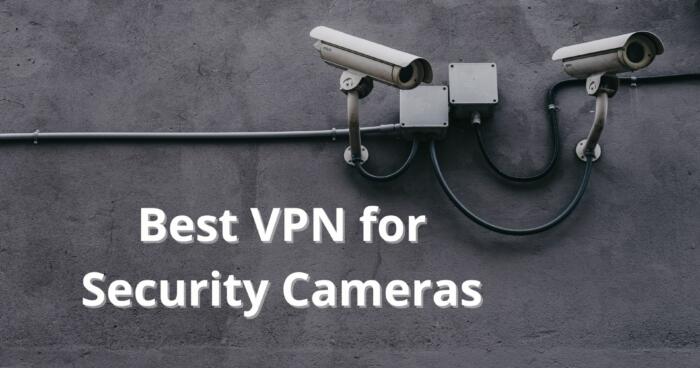
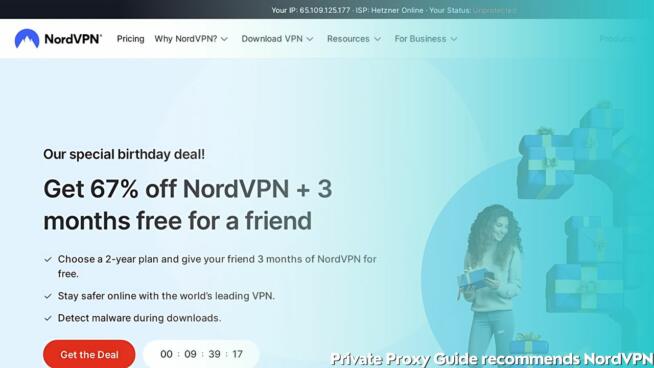
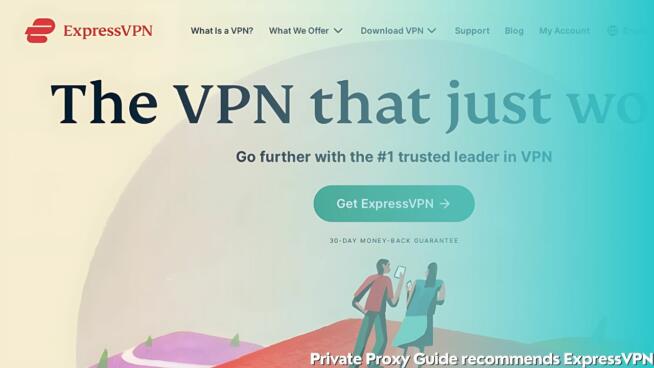
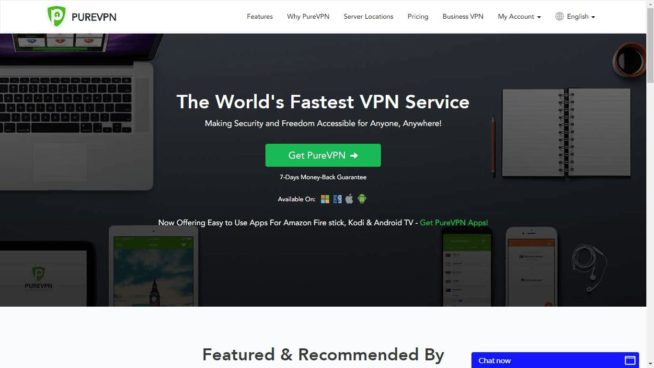
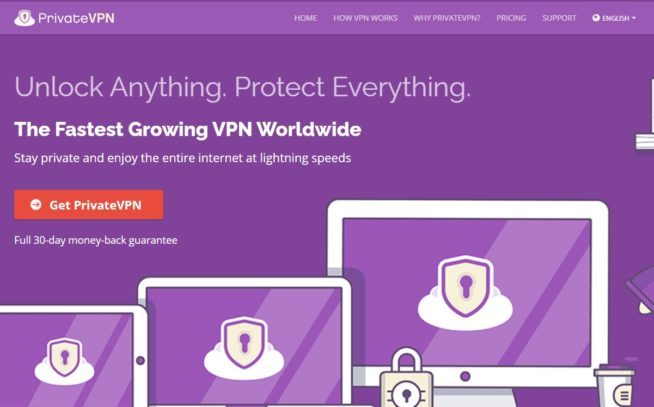
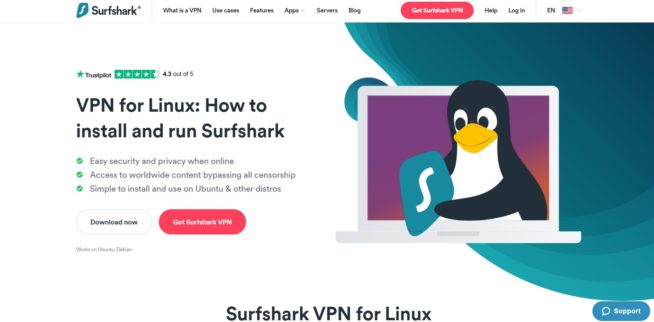
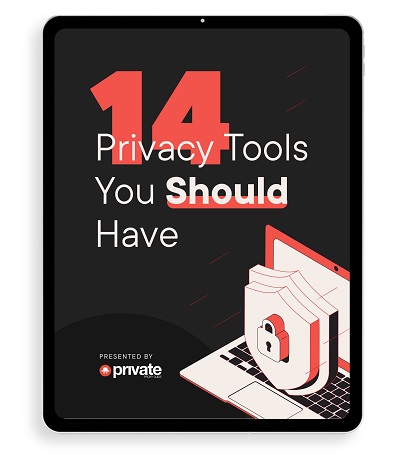

![Best Cheap VPN ([year]) for Privacy & Security Best Cheap VPN](https://www.privateproxyguide.com/wp-content/uploads/2022/05/Best-Cheap-VPN-150x150.jpg)
![Surfshark VPN Review ([year]) [speed & security test] surfshark review](https://www.privateproxyguide.com/wp-content/uploads/2021/10/homepage-150x150.jpg)
![ExpressVPN review ([year]) [speed & security test] expressvpn](https://www.privateproxyguide.com/wp-content/uploads/2021/03/expressvpn-2024-150x150.jpg)
![NordVPN review ([year]) [speed & security test] nordvpn](https://www.privateproxyguide.com/wp-content/uploads/2021/03/nordvpn-2024-150x150.jpg)
![NordVPN vs ExpressVPN (2024) [speed, security & streaming] nordvpn vs expressvpn](https://www.privateproxyguide.com/wp-content/uploads/2021/03/nordvpn-vs-expressvpn-150x150.jpg)
![Surfshark vs ExpressVPN ([year]) [speed, security & streaming] Surfshark vs expressvpn](https://www.privateproxyguide.com/wp-content/uploads/2021/12/Surfshark-vs-expressvpn-150x150.jpg)

![5 Best VPN Providers ([year]) [PC, iOS, Android] VPN](https://www.privateproxyguide.com/wp-content/uploads/2021/03/vpn-150x150.jpg)
![Best VPN for Kodi in [month] [year] Best VPNs for Kodi 2021 - To Avoid Buffering & Other Issues](https://www.privateproxyguide.com/wp-content/uploads/2018/05/kodi-launch-logo-150x150.jpg)

![Best VPN for DraftKings in [month] [year] Best VPN for DraftKings](https://www.privateproxyguide.com/wp-content/uploads/2018/07/Best-VPN-for-DraftKings-150x150.jpg)
![Best Fortnite VPN in [month] [year] Best VPN for Fortnite](https://www.privateproxyguide.com/wp-content/uploads/2018/07/Best-VPN-for-Fortnite-BattleRoyale-150x150.jpg)
![5 Best VPN for Bet365 ([year]) [Fix not working] Best VPN for Bet365](https://www.privateproxyguide.com/wp-content/uploads/2018/08/best-vpn-for-bet365-150x150.jpg)
![Best Showbox VPN in [month] [year] Best VPN for Showbox](https://www.privateproxyguide.com/wp-content/uploads/2018/08/best-vpn-for-showbox-150x150.jpg)